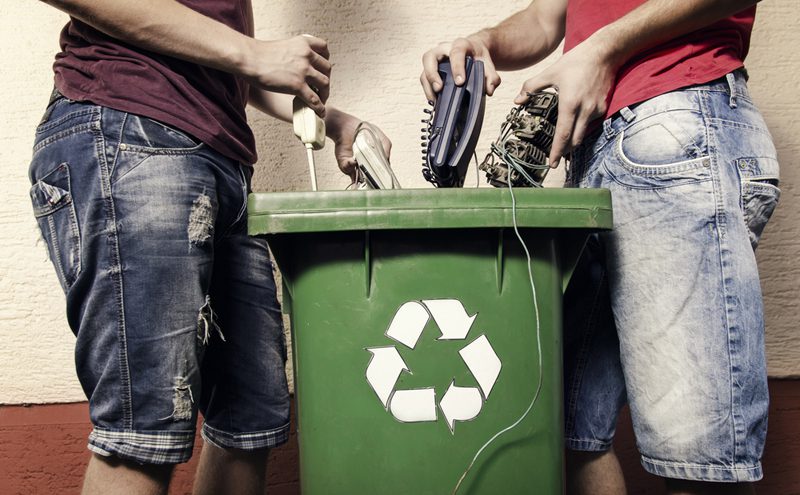
An EU-funded project appears to illustrate the possibilities for increasing collection rates of difficult-to-recover WEEE items by partnering with well-known and trusted consumer brands.
As part of the EU LIFE funded Critical Raw Material Closed Loop Recovery project, circular economy specialist Axion partnered with renowned brands, British Heart Foundation, Dixons Carphone and John Lewis, to develop and deliver WEEE collection trials across the North of England.
Using both retail take-back and incentive return schemes the trials targeted high value IT equipment and consumer electronics, resulting in over 300 items collected and over £2,000 raised for the British Heart Foundation.
Items targeted for collection during the trial were those not generally disposed of via typical collection and recovery channels, often due to concerns around data security (e.g. laptops, PCs, tablets, cameras, games consoles and DVD / Blu-Ray players). Results from the trial indicated that partnering with such well known and trusted organisations helped the public to overcome data security fears and encouraged donations and returns.
Bettina Gilbert, Programme Manager for WRAP Cymru said: “We are delighted with the results of this trial, which used a collaborative approach to successfully increase the collection of WEEE, has demonstrated commercial benefits, and resulted in the recovery of additional critical raw materials from the waste stream”.
Each year millions of tonnes of WEEE is generated in the EU, but only 30% is reported as properly collected and recycled. The EU LIFE funded Critical Raw Material Closed Loop Recovery project is investing in trials exploring novel ways of boosting the recovery of critical raw materials (CRMs) from household waste electrical and electronic products (WEEE). The Critical Raw Materials Closed Loop Recovery Project aims to increase the recovery of target CRMs by 5% by 2020 and by 20% by 2030.
The collection and recovery trials were the first stage in the €2.1m, three-and-a-half-year project, which is supported by the LIFE financial instrument of the European Union, Innovate UK, the Welsh Government and the Department for Environment, Food and Rural Affairs (Defra), and led by WRAP. The outputs from the trials will inform policy recommendation throughout the EU.
Project partners include the European Recycling Platform (ERP), the European Advanced Recycling Network (EARN), the Wuppertal Institute and the Knowledge Transfer Network (KTN).
Full details of the Axion-led take back and incentivised return trials can be found in the latest case study to be released by the Critical Raw Materials Closed Loop Recovery project, available here: www.criticalrawmaterialrecovery.eu/home/casestudies/retail-and-charity-trials







